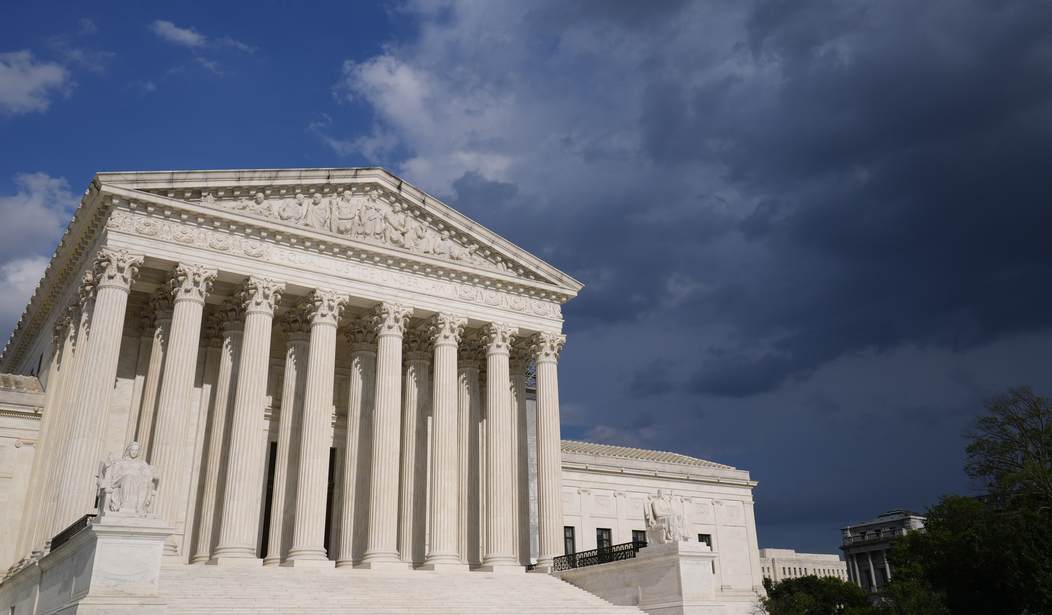Three weeks into Donald Trump's term of office, dozens of lawsuits have already been filed challenging the president's executive orders. To date, there have been eight rulings by federal judges temporarily pausing the implementation of those orders.
On what basis are almost all of those challenges being made? The Administrative Procedure Act (APA), passed in 1946, was designed to rein in the administrative state and protect against overreach and actions by federal agencies that might be deemed "arbitrary and capricious."
Agencies have figured out numerous ways to get around the "arbitrary and capricious" standard, but most challenges based on that standard, at the very least, get a hearing in court. And that's where we are now.
The APA didn't have the teeth to actually stop the administrative state from growing. But it could throw a monkey wrench into an agency's effort to comply with a presidential executive order. And that's what plaintiffs are doing. The idea is to delay, to impede, and to hinder an agency from complying with the president's orders and, perhaps, get the Supreme Court to see Trump's orders as "arbitrary and capricious." leading to its defeat.
"Our Constitution says the president shall take care that the laws are faithfully executed," said David Super, Georgetown University law professor. "If the president pushes policies that exceed our notions of what the executive can do, any president in the future can largely do whatever they want."
The key is whether Trump's executive orders violate the "arbitrary" standard. Proving that an executive order is "capricious" is a far tougher standard because the plaintiff must prove "intent."
But how do judges determine if a rule or action is "arbitrary"?
"It's fine if I decide that your business should be suspended because you're selling dangerous foods, but it's not fine if I say your business should be suspended because I don't like you," he said.
This standard is useful because it allows courts to invalidate a policy even when the agency has otherwise complied with the APA's requirements, which include things like notifying the public of a proposed rule and inviting public commentary, or promptly explaining the denial of a grant application.
However, an "arbitrary and capricious" review is not always an easy bar to meet. Judges must defer to an agency's decisions and findings, unless they seem patently unreasonable.
However, an "arbitrary and capricious" review is not always an easy bar to meet. Judges must defer to an agency's decisions and findings, unless they seem patently unreasonable.
That's the catch for plaintiffs suing to overturn an executive order. The judge must give the benefit of the doubt to the agency unless the rule appears to be "unreasonable."
The plaintiffs, challenging the so-called "Fork Directive" offering government employees a generous severance package if they quit, claimed that the Office of Personnel Management (OPM) failed "to consider possible adverse consequences" if the plan went forward.
One aspect of the "arbitrary" standard that plaintiffs can meet to have a judge declare the action illegal is if the action is a departure from standard rules and practices. No one in history has ever asked more than a million federal employees to take a severance package and resign. A court may consider that departure from standard practices "arbitrary."
An action is also invalidated under the "arbitrary and capricious" standard when it is otherwise prohibited by law. In Doe v. McHenry, a case brought last week by incarcerated transgender women suing to prevent their transfer to a male federal prison, the plaintiffs argue that Trump's "gender ideology" executive order is arbitrary in part because it violates their statutory rights.
Rarer are those agency actions that are blocked because a court is skeptical of policymakers' motives. In 2019, the Supreme Court struck down an attempt by Trump's Department of Commerce to include a citizenship question on the 2020 census, because, as Super highlights, Chief Justice John Roberts found the stated reasons for the agency's action "disingenuous."
Some Trump executive orders will almost certainly be struck down based on one or more definitions of the "arbitrary and capricious" standard. The administration will then have the option of appealing the decision. The administration may also choose to alter the executive order in question, hoping to get a favorable ruling on the amended order.
It's ironic that a law passed to keep the administrative state from growing would be used by the left to stymie efforts to shrink the government.










